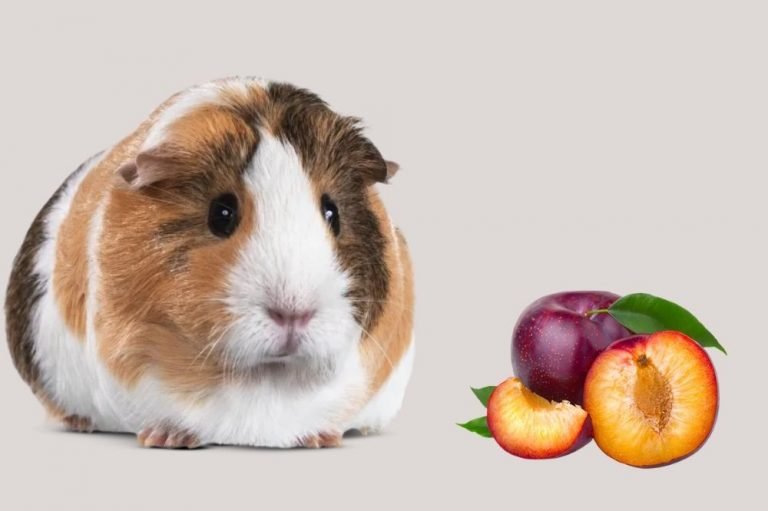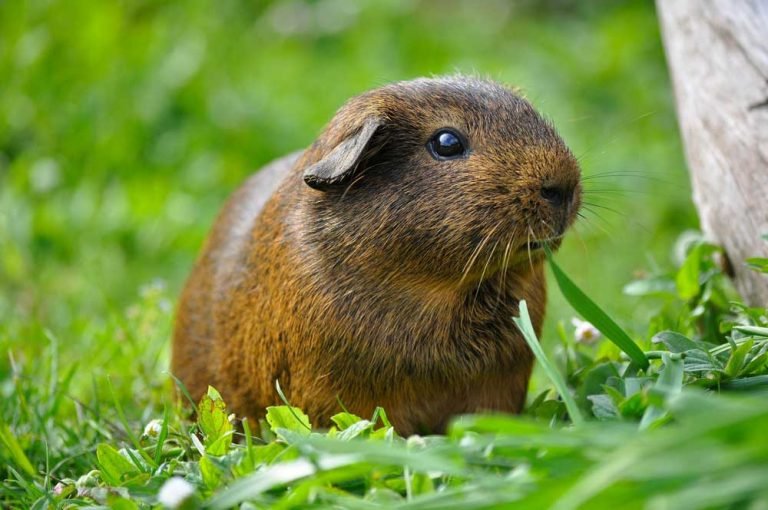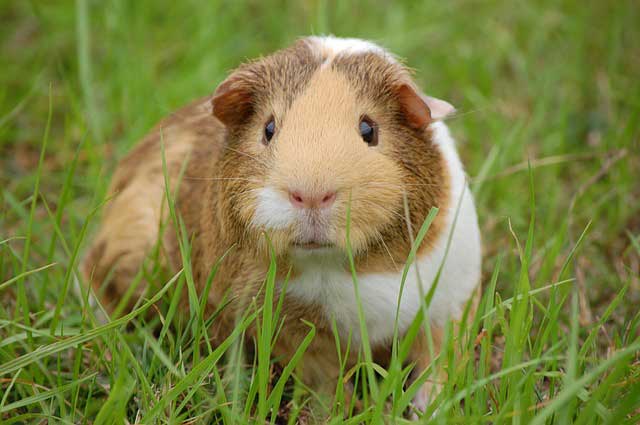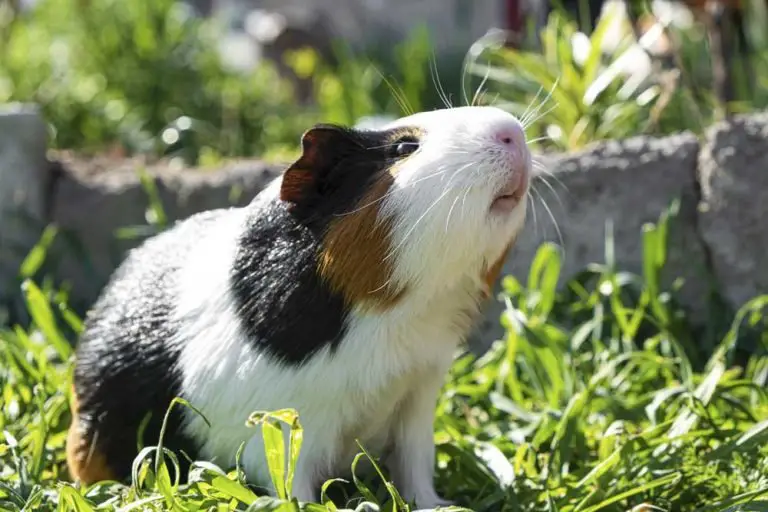Can Guinea Pigs Eat Blueberries?
Having a guinea pig as a pet requires a great deal of caretaking. As a pet parent, you have to pay close attention to what they eat because this directly impacts their health and overall wellbeing.
If you’ve had your guinea pig for a while, then you must have realized that your furry friend has a sweet tooth. However, that does not give you a free pass to feed him/her everything tasty.
Blueberries are a good example of some of the tasty fruits that many guinea pig owners may have thought of feeding their pet but weren’t quite sure of the possible outcome.
To get all the facts right, let’s start by tackling the below question;
Can Guinea Pigs Eat Blueberries?
Guinea pigs love tasty fruits, so they do eat blueberries. Blueberries contain essential nutrients and are also antioxidant-rich, which means they can strengthen your guinea pig’s immune system. However, the servings should be in small amounts because blueberries are packed with sugars.
With that being said, you should only feed your guinea pig blueberries up to two times a week, and the portions given should be moderated to avoid causing harm to your pet.
How many blueberries should I give my guinea pig?
Blueberries are somewhat small, so you may be tempted to give your piggy the whole bunch. Nonetheless, this may have a negative impact on the health of your pet.
As such, an adult guinea pig should only be fed small bite-size portions, which should not be more than three in each serving session.
This can be a bit challenging if you have several guinea pigs because you may have a hard time knowing the piggies that have eaten the blueberries and the ones that have not.
As a result, some of your pets may end up exceeding the recommended amount, so you should consider separating the guinea pigs when administering the berries.
The best way to go about this is by acquiring a separate cage in which you can place the piggies one by one when giving the pets treats such as blueberries.
That way, you will have an easier time monitoring the number of blueberries that each guinea pig eats.
What is the best way of introducing blueberries to a guinea pig’s diet?
Guinea pigs are very delicate animals, so you have to be careful when introducing something new to their diet.
This especially applies when dealing with sweet fruits and treats, which can easily shock the animal’s system.
And since blueberries fall in this category, they should be given gradually to give the pet enough time to adjust.
You can start by giving the piggy one small piece in the first few weeks, after which you can observe the pet closely for any changes.
If the guinea pig does not show any allergic reactions, you can increase the number of pieces to the recommended portion.
Benefits of Including Blueberries in a Guinea Pigs Diet
Blueberries contain a plethora of bioactive compounds such as myricetin, kaempferol, quercetin, etc.
All these elements play a critical role in ensuring your guinea pig stays in a good state of health.
Additionally, blueberries have enough vitamin C to keep your piggy’s collagen levels in check.
Apart from that, vitamin C also plays a special role in the repair of damaged or worn-out body tissues, meaning that your guinea pig will always stay fit provided that you put the animal on a balanced diet.
The vitamin K in blueberries will help your guinea to develop stronger bones and will also ensure that calcium is metabolized correctly.
Your guinea pig will also benefit a lot from the dietary fiber that blueberries offer. As a result, your guinea pig will have an easier time digesting and absorbing food.
But, that’s not all; blueberries also contain different types of vitamin B such as niacin, thiamin, pantothenic acid, and many more.
There is also a trace amount of vitamin E in blueberries. This vitamin can inhibit hepatic lipid peroxidation in guinea pigs, thereby preventing cell damage.
Do blueberries give guinea pigs mouth sores?
Blueberries are acidic by nature, so they may give guinea pigs mouth sores.
However, this does not apply to all guinea pigs since some pets are more resilient to the natural acids found in these fruits.
You can prevent this by feeding the pets small portions to limit excessive exposure.
If you notice that the pets are still getting mouth sores after reducing the portions, you should immediately remove blueberries from their diet to prevent unnecessary discomfort.
Can I give my guinea pig blueberry leaves?
Just like the fruit, blueberry leaves are rich in antioxidants and dietary fiber, thus making them an ideal food for guinea pigs.
The leaves should also be given in moderation and not as a staple food since they may also cause some side effects to your furry friend.
What of the small twigs that make up the bunch, can guinea pigs eat them?
Guinea pigs can safely nibble blueberry twigs, but you have to prepare them properly by washing off all the dirt.
In addition to this, you should ensure that the twigs are not dry because guinea pigs prefer chewing on foods that are a bit juicy.
Final Thoughts

Blueberries are extremely sweet, but the weird thing is that the sweetness is what makes them harmful to guinea pigs if availed in excessive amounts.
When guinea pigs eat too many blueberries, they may get gastrointestinal discomfort, which may later cause diarrhea.
Aside from that, the guinea pig may also suffer from other serious health complications that may cut the life of your pet short.
The good thing is that you can prevent this from happening by paying close attention to your guinea pig’s diet.
As stated before, you must limit the number of berries that the guinea pig eats every week since this will save the life of your pet.
Also, ensure that hay makes up the largest portion of your piggy’s diet. Blueberries should just be but a supplement.
- Can Guinea Pigs Eat Lawn Grass? Find out now!
- Can Guinea Pigs Eat Wet Grass? Find out now!
- Can Guinea Pigs Eat Weeds? Explained
- Can Guinea Pigs Eat Watermelon? (Benefits & Risks)
- Can Guinea Pigs Eat Strawberries? [Feeding Guide!]






